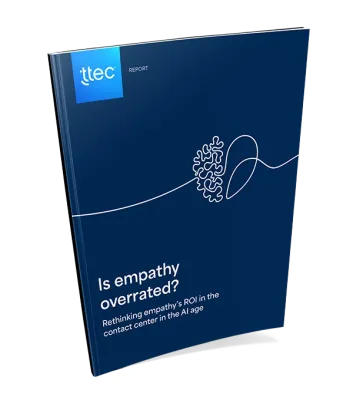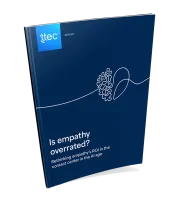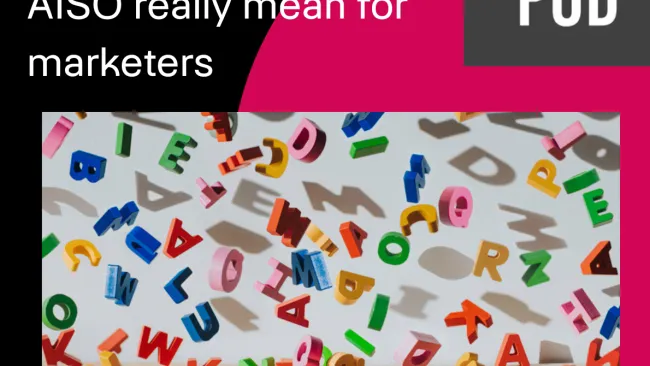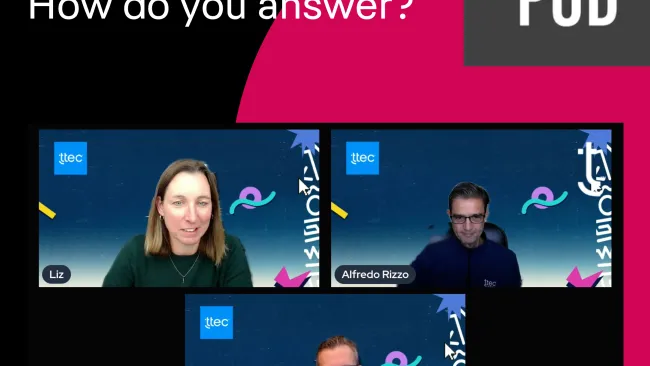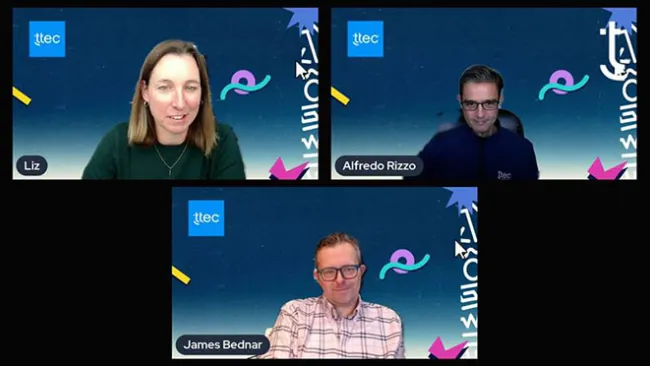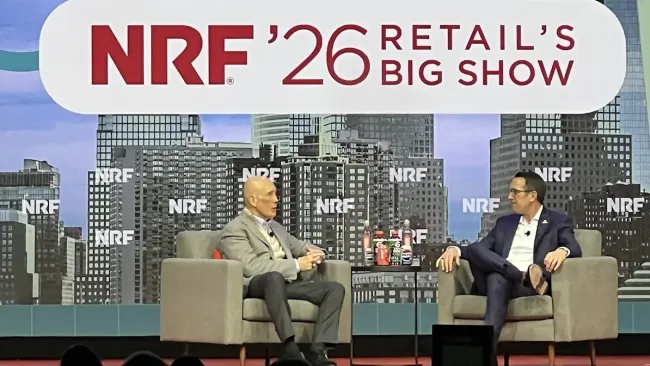
TRANSCRIPT
Liz Glagowski:
Hi, and welcome to the CX Pod. I'm Liz Glagowski of the Customer Strategies Journal. The CX Pod focuses on innovations happening within the world of customer experience, and there's no other innovation more important than AI.
So rather than just talk about AI as a concept, we are going to provide some real examples and use AI within this podcast. In addition to our real life stories where I and my colleagues interview key leaders around the industry, we're going to be adding some AI produced podcasts that summarize and provide context to our customer strategies, journal content, tech case studies and other important content such as a blog, an article, a video, other things like that.
We'll be using Google's NotebookLM tool, which is a great resource featuring two voices having a conversation about a specific topic. So sit back, relax and listen to our AI generated friends discuss the lessons learned about fraud prevention and protection that Apple has delivered.
And let us know what you think. Is it too creepy? Is it great and worthwhile? Or what other comments do you have? We'd love to hear them.
(Email elizabeth.glagowski@1to1.com to share your thoughts).
So here's our AI-generated content ,originally written by Philip Say, and appeared in the July 20, 25 issue of the Customer Strategist Journal --https://www.ttec.com/articles/what-apples-anti-fraud-success-teaches-enterprise-leaders
The following was generated by AI (Google NotebookLM):
Today we're taking a close look at something that really touches every digital interaction we have fraud prevention. Apple recently shared some well, pretty remarkable numbers about their efforts.
They blocked an incredible $2 billion in fraudulent transactions last year alone, 2 billion just staggering. Yeah. And that brings their five year total to an astounding $9 billion thwarted. It's a really compelling case study, I think, for any leader out there. Absolutely. And, you know, while that might just sound like another corporate announcement from, well, a tech giant, it actually offers far more significant, really actionable lessons for you, the listener, especially if you're an enterprise leader grappling with digital trust and security.
This isn't just about big tech's bottom line. You know, it's really about these hidden, constant battles behind, well, every single digital transaction we make every day. Okay, let's really try and unpack this. The sheer scale Apple is operating on here is huge. We're talking about a system handling transactions for what is it, over 813 million weekly visitors? Yeah, eight under 13 million weekly across 175 global regions.
So it's not just a small problem they're tackling. It's like an ongoing global siege almost exactly. And what's fascinating here, I think, is the sheer volume of malicious activity they're actually dealing with right now. In just one year, they block nearly 2 million risky app submissions, 2 million apps. Wow. And terminated 146,000 developer accounts. Okay. And then on the customer side, they rejected a staggering 711 million fraudulent customer account attempts.
Just got 711 million attempts. Yeah, that's incredible. And it doesn't stop there. They blocked over 10,000 illegitimate apps on, like pirate storefronts. Yeah, those dodgy ones. Exactly. And stopped nearly 4.6 million attempts to install unauthorized apps through those kinds of channels. That's a truly staggering amount of activity they're fending off. But what's really striking you mentioned this is how this battle goes far beyond just, you know, simple payment theft.
Oh, absolutely. What are the broader implications when these bad actors aren't just after the money? That's an excellent point, because this battle, it's really multi vector. Mm. These bad actors, they're trying to steal personal data, create fraudulent accounts for other purposes, and even distribute pirated apps containing, well, everything from malware to pornography and gambling content. So a whole range of nasty stuff.
Exactly. So this vigilance, it matters so profoundly because when fraud succeeds, everyone pays the price, right? Yeah. Legitimate businesses lose significant revenue. Consumers, well, they lose confidence in the platforms they use every day, which is huge. And those platforms in turn lose credibility. So Apple's success here isn't just about protecting its own revenue streams. It's fundamentally about maintaining trust across an entire vast digital ecosystem.
And speaking of trust, it's interesting to consider the strategic timing of Apple's announcement here, right? It wasn't just coincidental, was it, coming just days before their big developer conference, WWDC 2025? Yeah, And specifically right after that, Epic Games Legal victory. Exactly. That ruling prompted a lot of developers to seriously think about alternative payment methods, you know, outside of Apple's system.
Yeah. And if we connect this to the bigger picture, Apple's announcement, it suddenly reveals what you could call the invisible value. Its platform provides invisible value. Explain that a bit.
What's fascinating here is that early data from companies like Revenue CAP, it suggests that many small businesses are actually unlikely to financially benefit much from switching to their own payment systems.
Really? Why is that? The primary reason seems to be the unexpected and often substantial fraud related costs and complexities. They'd suddenly have to manage themselves. Okay, so imagine you're a small indie developer, right? Suddenly you're faced with managing potentially millions in transactions and all the fraud risk that comes with it. Yeah, exactly. That's the cold reality many are probably considering.
It really makes you wonder what other invisible value might you be benefiting from in other services or platforms you use every day, Things you might not have fully accounted for or maybe even realized was there in the first place? It's a great question. So, okay, what does this all mean then, for your enterprise, for your leadership? It seems Apple's anti-fraud success gives us, what, five critical lessons?
Lessons that are pretty universally applicable, I guess, regardless of your industry or scale. That's right. Five key lessons. And the first one is crucial. Fraud prevention must be treated as core infrastructure. Core infrastructure, not just a cost center. Exactly. Apple clearly views it not as some necessary evil or cost, but as a fundamental competitive advantage. Think of it like a really robust foundation for a skyscraper.
Okay? You don't skimp on it, right? Yeah, because it enables all the growth and innovation happening above ground. It maintains customer trust and operational efficiency. That's a powerful analogy. So it's not just about stopping losses, then it's really about enabling growth. But, you know, for many leaders, fraud prevention probably still feels like a drain on resources. What's the biggest mental shift needed to really embrace this essential infrastructure mindset?
That's a challenge for sure. It requires seeing the long term value, the trust dividend, which leads us, I guess, right into lesson number two scale amplifies both opportunity and risk. Yeah, it's a double edged sword. Obviously, Apple's massive scale, you know, processing billions and transactions makes them an incredibly attractive target for fraudsters. That's the risk part, huge target.
But then on the flip side, that exact same scale provides this enormous dataset, the raw material essentially to build those incredibly sophisticated detection systems. That's the opportunity, right? The more data, the smarter the system can potentially get. So for any enterprise, it's a reminder, isn't it? As you grow and succeed, you should anticipate a proportional increase in fraud attention.
You really need to plan for it from day one, not just react when it happens. You absolutely do. Which brings us to our third lesson Multilayer defense is non-negotiable, multi-layered. So not just one big wall. No, definitely not. Yeah, Apple's approach is really comprehensive. Think of it maybe like different security checkpoints in an airport. Okay. Like that, right.
There's a check when you book your ticket that's like account creation. Another when you check your bag app submission, a scan at security transaction processing makes sense and even monitoring for suspicious behavior once you're on the plane, that's post-transaction monitoring. So the point is enterprises need similarly robust, comprehensive strategies. You have to address fraud across all customer touchpoints, not just tack on payment processing security at the very end.
That makes perfect sense. It's not a single point of failure, but a series of defenses. But for a smaller company, or maybe one that's growing really fast, how do you even begin to identify all those potential touch points where fraud might occur, let alone build out a defense for each one? That sounds complex. It is complex, no doubt.
It requires really mapping the customer journey and thinking like a fraudster where the weak points. But it's essential work right? And that point about the unseen benefits Apple provides, that really underscores lesson number four. Be aware of the hidden costs of going it alone. Yes, this is critical. The whole Epic Games situation really highlighted how seemingly expensive intermediaries like Apple's App Store often provide this immense off invisible value like fraud prevention.
Exactly. So before you decide to, say build internal capabilities or switch providers because it looks cheaper on the surface, yeah, you absolutely need to fully quantify the total cost of ownership. Total cost meaning? Meaning factoring in not just the potential fraud losses you'll now absorb, but also the operational overhead, the engineers, the analysts, the time and resources you divert from your core business.
Precisely. And even the opportunity costs. What could you have built if you weren't fighting fraud fighters? That's a sobering calculation for many. I bet it can be. And finally, that brings us to lesson number five. Trust acts as a powerful competitive moat, a moat like protecting a castle, essentially. Yes. Apple's significant ongoing fraud prevention efforts create this powerful barrier around their ecosystem.
The more secure their platform is perceived to be, the more valuable it becomes Exactly to both developers who want a safe environment for their apps and for consumers who trust making transactions there. So the investment pays off in loyalty and usage. It does. And this means that investing strategically in security and fraud prevention can similarly differentiate your business in competitive markets.
It builds that long term customer loyalty. It becomes part of your brand promise. That's a powerful idea. Building trust is a competitive moat. But again, for a smaller company, how do you even begin to measure that trust or, you know, know where to invest smartly to build that kind of barrier effectively, especially without Apple's kind of resources? That's the challenge, right?
It starts with prioritizing customer security, being transparent and investing proportionately. Even small steps Build trust over time. You don't need Apple's budget to make security a core value. Okay. So if we sort of connect all these lessons back to your broader context, the listeners context. Yeah. In this era where digital transformation is just constantly accelerating business processes, but also expanding the attack surface and massively expanding them.
Fraud prevention isn't just some operational requirement anymore, is it? It's rapidly becoming a core strategic capability for any enterprise that wants to thrive, not just, you know, survive. Absolutely. And this raises, I think, a really important question now. It's no longer really about whether to invest in fraud prevention. Right. That ship has sailed. Pretty much. It's about how to invest intelligently, because effective fraud prevention requires significant ongoing investment.
It needs sophisticated technology, yes, but also deep operational commitment. It's not a one and done thing. Not at all. And the alternative just hoping for the best, exposing your business and your customers to potentially billions in losses. It's ultimately far, far more expensive in the long run. It really shifts the perspective, doesn't it? The companies that are truly thriving in this digital economy, they seem to be the ones that, like Apple, recognize fraud prevention as truly essential infrastructure.
Yes, what enables growth, it truly protects customers and ultimately it creates those sustainable competitive advantages we talked about. Well said. So I guess the core takeaway from today's deep dive is pretty clear. Security isn't just about protection anymore. It's fundamentally about enabling prosperity. That's a great way to put it, that $2 billion in potential fraud Apple blocked last year, that represents $2 billion that stayed in the pockets of legitimate businesses and consumers actually fueling the ecosystem, not draining it.
Exactly. Money that went where it was supposed to go. Right. So maybe for you, the listener, a final provocative thought to consider as we wrap up. How might you begin to quantify the invisible value of security and trust within your own digital interactions or maybe within your own business? How do you move beyond viewing it merely as a cost and start seeing it really seeing it as an investment in growth and stability?
That's a great question to ponder. We really encourage you to reflect on these insights and perhaps delve deeper into your own digital security strategies.
Liz Glagowski:
Thanks for joining us for this deep dive. Thanks for listening. We'd love to know what you think about these AI produced podcasts and you can learn more about customer experience from TTEC.com or CustomerStrategistJournal.com.
Thanks again. Have a great day.

